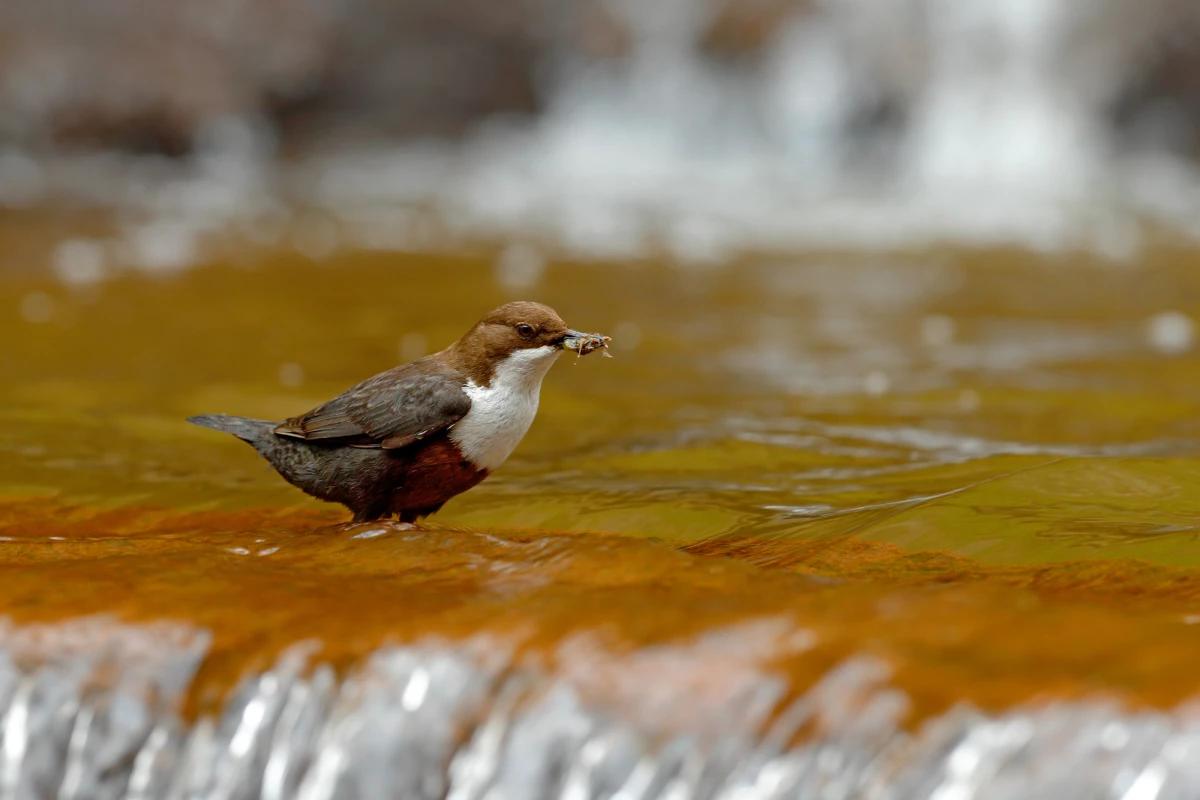According to the UN Environment Programme, we’ve produced more than eight billion metric tonnes of plastic since the early 1950s, with around 60 percent of that not recycled. It is very difficult for researchers to track the path of this waste when not it is improperly disposed of, but their efforts continue to turn up evidence of its detrimental effects on the natural world. The latest example comes from scientists in the UK, who have now discovered the first evidence of river-borne plastic waste traveling up the food chain.
While much is said about the accumulation of plastic waste in the ocean, the world’s river systems play a huge part in this environmental disaster, carrying a large percentage of the waste from leaky landfills and open dumps out to sea.
The research team made up of scientists at Cardiff University and the University of Exeter set out to explore how all of this might be impacting the wildlife in south Wales. The researchers studied the waste produced by dippers, which are river birds that feed on insects and small fish like minnows, producing either regular droppings or regurgitated pellets of undigested food.
Of the 166 dropping and pellet samples studied, the team found microplastic fragments in around half. Microplastics are pieces of plastic debris under five mm (0.2 in) in size, making them particularly difficult to track through the environment. In this case, the team says the majority were fibers derived from textiles and building materials, and that the greatest concentrations were found at sites in more urbanized locations.
“Our analysis showed that the dippers in the study were ingesting around 200 plastic particles daily from the insects they consume,” says Dr David Santillo from University of Exeter. “More than 75 percent of the fragments we found were less than 0.5 mm in size, but some were up to several millimeters in length. We have known for some time that microplastics including polyester, polypropylene and nylon, pollute Britain’s rivers. But our forensic approach now reveals how extensively these materials contaminate freshwater food webs. The impact of the chemicals and pollutants in these plastics on dippers and their chicks remains to be seen.”
The researchers say the dippers are inadvertently feeding their nest-bound chicks plastics via the insects they bring home for dinner. The team says this is the first evidence of microplastics traveling from insects in rivers upward to predators, a finding that mirrors a 2018 study that revealed the first evidence of plastic moving up the food chain in the ocean, via the analysis of of seal feces.
“Amidst concern about the oceans, it’s increasingly clear that plastics also affect organisms in rivers: these are a major route between land and sea for microplastics such as clothing fibers, tire dust and other fragmenting plastic waste,” says study author Joe D’Souza from Cardiff University. “The fact that so many river insects are contaminated makes it inevitable that fish, birds and other predators will pick up these polluted prey – but this is the first time that this type of transfer through food webs has been shown clearly in free-living river animals.”
The research was published in the journal Global Change Biology.
Source: Cardiff University




